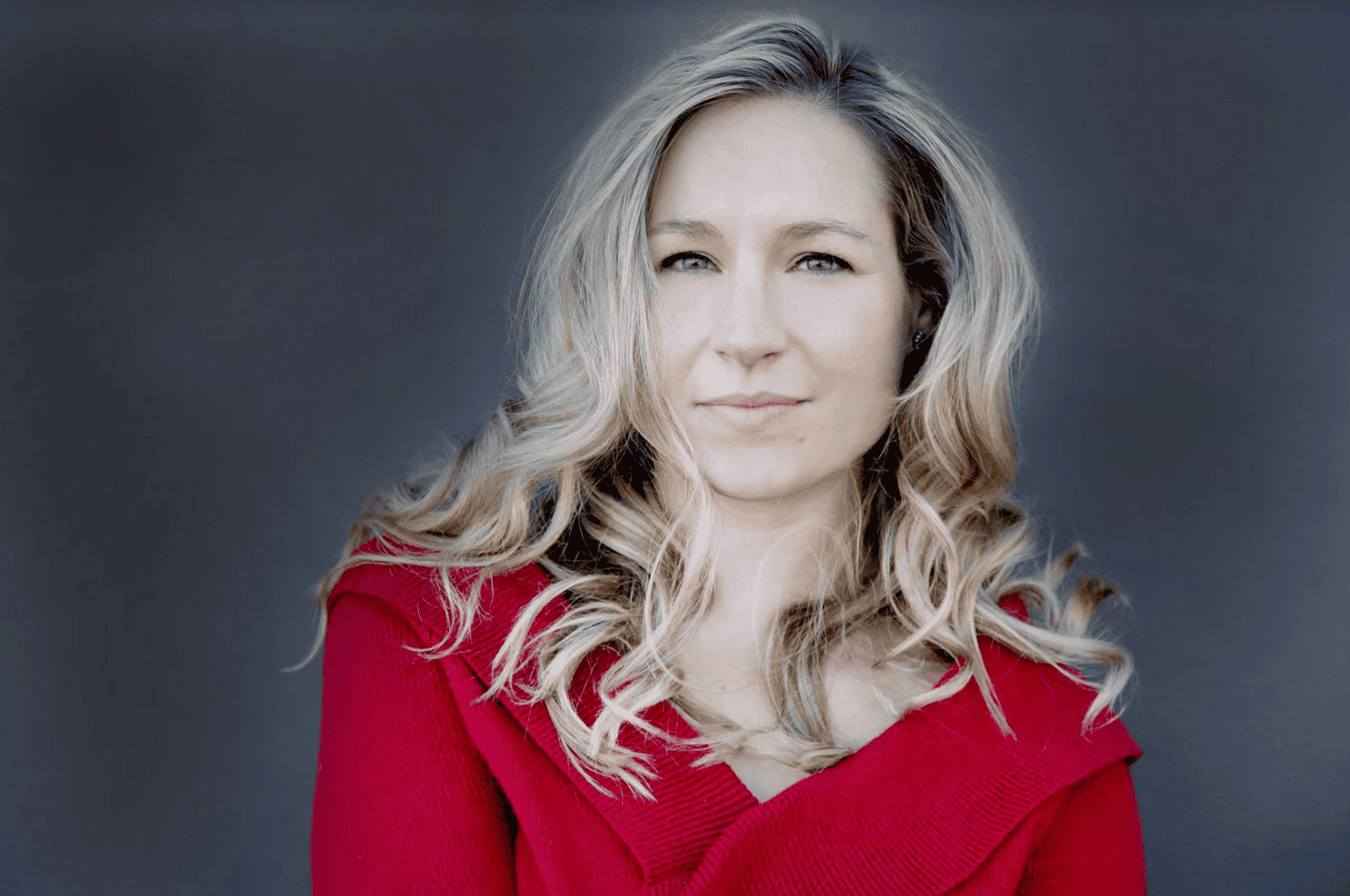

Looking for music by a living woman composer to feature on your undergraduate, graduate, or professional voice recital? Look no further than the catalog of Jocelyn Hagen. Read on to learn more about composer Jocelyn Hagen.
Jocelyn Hagen is a composer and performer who strives to defy the expectations of musicians and audiences alike with her work. While her roots are in writing for voice(s), she has also written instrumental solos for both the piano and the cello, chamber music and other large ensemble works with various instrumentation, and music/dance collaborations. No matter what you are looking for, Hagen’s catalog is full of great choices.
Her career has flourished from the beginning. After earning two bachelor degrees and a masters degree, Hagen became a full-time composer in 2008 as Composer-in-Residence with The Singers—Minnesota Choral Artists. Many of the works commissioned by this group are staples in Hagen’s repertory.
Her love of art songs is abundantly evident in Hagen’s catalog. She has composed many song cycles, and several individual songs. The cycle …and then we were left is based on The Lost Boys of Sudan and features poetry adapted by Hagen herself. It is written for baritone, cello, and guitar, and includes four songs that transport the performers and audience into a state of “emotional extremes such as fear, loss, devastation, and hope.” Songs of Fields and Prairies is an award-winning song cycle for soprano and piano featuring seven songs by various poets with a theme of our many connections to the land. Hagen’s newest song cycle Inside My Ribcage set to poetry by Noor Unnahar was recently premiered by the Virinca Trio: Darci Bultema, soprano; Audrey Miller, clarinet; and Philip Everingham, piano. Another recent project is her opera The Song Poet with librettist Kao Kalia Yang, which will be premiered in Minnesota Opera’s 2022-2023 main season.
Hagen describes her compositional style as always evolving, but there are some elements that remain. Her harmony tends to be modal, and she often thinks in layers. Because of this, it can be challenging to analyze Hagen’s music in the traditional chord-by-chord sense. She says that her harmonies occasionally come as a surprise because of the way the voice-leading directs her. Additionally, she is very in-tune to rhythm and beat, often incorporating a “groove” into her music. Experimentation is another pivotal element of her style. She seeks after opportunities to collaborate with other artists. For example, her piece Hummingbird (SATB choir, soprano solo, and piano/electronics) was written in collaboration with electronic musician/composer Spearfisher. She has also collaborated with choreographer Penelope Freeh to produce the award-winning Test Pilot. Collaboration forces Hagen to push herself and test her barriers. The main goal of Hagen’s music is that people walk away from a performance feeling inspired and that there is good in the world. It all comes down to making lives happier and making people think.
As a female composer, Hagen has had some negative experiences. Early in her career, no one treated her differently because she was a woman, but once she got into the “real world,” she encountered a lot more negativity. She suddenly felt out of place. It was a strange and frustrating experience for her having to fight for opportunities and often be passed over. She believes this treatment was not intentionally harmful, but she felt like people didn’t expect her work to be excellent, exciting, or groundbreaking. She wasn’t expected to go as far or become as famous as the young men in her field. This fact was and can still be hard to reckon with. To overcome this, Hagen embraces the often-used term “woman composer” because it empowers her femininity. Women composers in the past had to shed this aspect of themselves in order to compete in a field of men, and we are constantly working to dismantle that standard. Hagen explains that when she showed up “frilly and girly,” people didn’t know what to think of her. She was a surprise! While it was fun, the surprise got old after a while and she wanted to be seen as the talented, established composer that she was and is today.
Because of her experience as a performer, Hagen has a relaxed view on artistic license. She trusts performers to make decisions that will create the most effective performance. Interpretation is an important element of music making, but remember to value the act of collaboration and take advantage of having access to a living composer. If you would like to make a change, reach out to the composer to get their opinion. Hagen’s advice to those studying her music is to make sure you spend time with the text, and read the poem aloud. A lot of analysis can be done by singers in the text alone, which is where the soul of Hagen’s music lies.
Visit jocelynhagen.com to learn more.